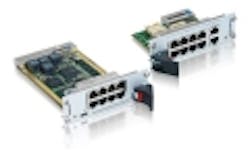ITAR restrictions could cost U.S. its global lead in unmanned vehicle technology, says Northrop Grumman CEO
FARNBOROUGH, England, 21 July 2010. U.S. export restrictions on military technology, as outlined in the International Traffic in Arms Regulations (ITAR), could encourage overseas competitors to develop their own unmanned aerial vehicle (UAV) technology and potentially cost the U.S. its technology lead in unmanned vehicles, warns Wes Bush, chief executive officer of Northrop Grumman Corp. in Los Angeles.
Bush made his comments at the Farnborough International Airshow this week in Farnborough, England. "We need to recognize exactly what it is we're trying to protect," Bush was quoted as saying during his visit to Farnborough. "There are a lot of folks around the world that understand how to build really good air frames. And a UAV is basically an air frame."
ITAR restrictions often cause headaches for those involved in the defense industry -- many of whom complain loudly that ITAR is harming U.S. military technological competitiveness. Ambiguous guidelines and increasingly tough penalties have made the U.S. defense industry skittish about doing business overseas. As a result, companies are exceedingly cautious about exchanging technological information even with nations friendly to the U.S., which can impede trust and delay sales.
Moreover, allied nations outside U.S. borders often can become frustrated with tentative business negotiations and fear of mountainous paperwork and potential crippling fines. As a result, they can go elsewhere for military technology in a global UAV market where critical technologies increasingly are available to a widening group of global suppliers.
Some of this has happened in the satellite industry, Bush pointed out this week. Export restrictions "caused competitors around the globe tin invest where we already had invested, and it locked us out of markets," Bush was quoted in an interview with Aviation Week and Space Technology this week at Farnborough. "We could very well do that to ourselves on unmanned systems."
